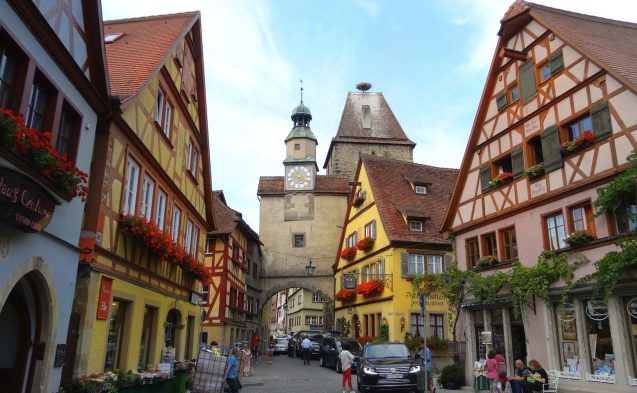An intensive process of borrowing from other languages into the common Bulgarian`s vocabulary is observed during the Ottoman rule. Some of the borrowings are the logical consequence of the social economic conditions and the ethnic religious environment, into which the Bulgarians were forcefully drawn. Others were the fruit of cultural educational influences. These phenomena, however, did not harm the linguistic glue of Bulgarian society.
Yet in the 15th century many members of the subjugated Christian population were forced to learn Ottoman Turkish as the official language of the empire. With the passing years, Turkish words penetrated the everyday lifestyle of the Bulgarians. During the Revival Period, the study of Turkish was included in the curricula of most schools across Bulgaria. The Russian, Greek and French languages also left traces in the development of Bulgarian speech, but the result of the complex linguistic interactions was the modernization and enrichment of the lexis of the Bulgarian language.
New horizons for Bulgarians
At the same time, the mastery of the languages of the empire and the languages of the New Time, which were extensively studied in Bulgarian schools, opened new horizons for Bulgarians` communication with neighboring and distant nations. Plurilingualism became gradually a characteristic feature of the educated Bulgarian. That gave him confidence, made him equal to others, and facilitated his incorporation in modem European culture. After the Liberation, one official language was introduced in the Bulgarian Principality Bulgarian. But there were schools, cultural educational organizations and newspapers, which operated in the languages spoken by the minorities, while in neighboring countries, like Serbia and Greece, Bulgarians were forbidden to speak in their native language.
The official language of liberated Bulgaria stretched over territories which were wider than the ones determined by the international treaties. Dialect diversity continuously enriched the literary norm and the changes of 1921 and 1945 simplified its written form. In addition to Bulgarian, people communicated in Turkish, Greek, Hebrew, Romanian and Armenian, which they learnt in specialized schools. Books and newspapers were written and published in these languages; plays were staged and religious services were held. The Bulgarians themselves adopted and made Bulgarian many words from the languages of their compatriots, which fit into the language like native ones. Many proverbs and sayings of the minorities were translated in Bulgarian and incorporated in the folklore tradition.
The observations above show that the ethnic linguistic beginning is not exhausted only with the biological or the language genesis base. Essentially, it is cultural and historical, i.e. it constitutes the emergence and hierarchy of values. Language “rethinks” the value system and it is as developed and rich as the pillars of the “spoken” civilization support its “thinking”.
Read More about Second Battle with Heresy part 18








